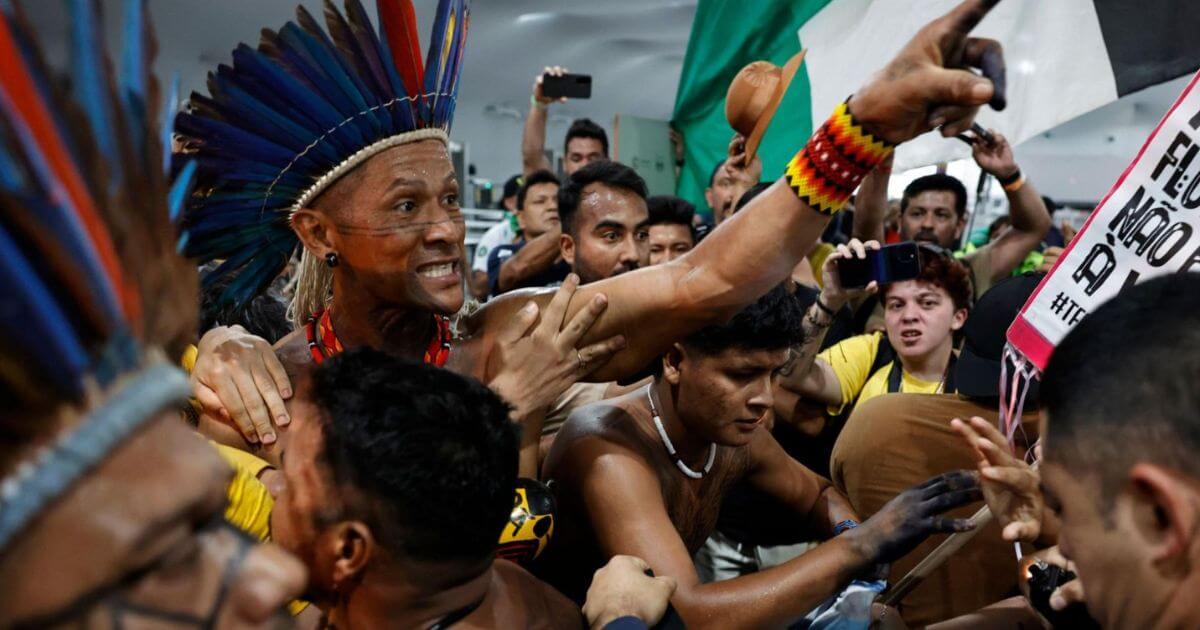Indigenous communities made their presence impossible to overlook at COP30 in Belém. Their actions brought global attention to the urgent need to protect their territories and to include their voices in climate decision-making. What unfolded revealed the growing tension between long-standing Indigenous stewardship of the Amazon and the political negotiations that continue to sideline them.

Key Points
- Indigenous leaders pushed through barriers at the COP30 venue to be heard.
- Voices from the Amazon highlighted years of extraction, pollution, and unfulfilled promises.
- Cacique Gilson of the Tupinambá people called for free and protected territories.
- Protesters emphasized that real climate leadership must involve Indigenous guardians of the forest.
- The events in Belém signaled a turning point in demands for meaningful participation at climate summits.
A Demand for Visibility at COP30
In Belém this week, Indigenous leaders cut through the noise of international negotiations and brought forward their stories with a clarity that could not be ignored. Their presence exposed a mismatch between the urgency felt on the ground in the Amazon and the pace of diplomatic discussions taking place inside the conference halls.
Cacique Gilson, a leader of the Tupinambá people of Baixo Tapajós, put the situation into words that resonated far beyond the venue:
“It’s a moment of revolt, of indignation. We feel the defeat of our territory in our skin. We don’t eat money. We want our territory free.”
These words captured the frustration of communities who have spent generations defending the Amazon while facing extraction, pollution, land grabs, and broken commitments from governments and industries. Although they protect one of the world’s most vital ecosystems, they are still often the last to be included in decisions about its future.
A Turning Point for Climate Leadership
The actions in Belém reflected a growing insistence that climate solutions cannot be crafted without Indigenous leadership. These communities hold knowledge passed down across centuries and have maintained the forest where others have depleted it.
For many who witnessed the scenes at COP30, the message was clear: climate leadership begins with the people who have lived in balance with nature the longest.

